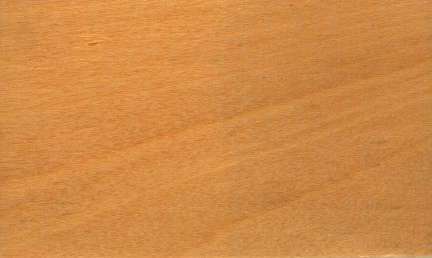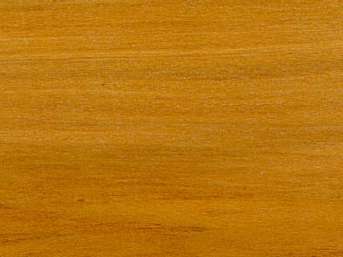 
Odoko (Scottellia coriacea)
Family: Flacourtiaceae
Common names: Akossika, Ashante, Benarbinekele, Bilohg-bi-nkele, Emwenfuohai, Ewe, Koroko, Korokon, Koronkon, Kruku, Lakpa, Nemor bode, Ngobisolo, Odoko, Okoko, Tiabutuo, Wassau
Distributed in: Cameroon, Congo, Gabon, Ghana, Ivory Coast, Liberia, Nigeria, Sierra Leone (Africa)
Distribution overview: The species occurs in West Africa, from Liberia to southern Nigeria. It grows in evergreen, lowland rain forests, and is often found on stream banks in small stands.
Common uses: Bent Parts, Brush backs & handles, Building materials, Cabinetmaking, Carvings, Chairs, Chests, Cooperages, Decorative plywood, Desks, Dining-room furniture, Domestic flooring, Drawer sides, Fine furniture, Flooring, Flooring: industrial heavy traffic, Food containers, Fuelwood, Furniture , Furniture components, Furniture squares or stock, Furniture, Hatracks, Heavy construction, Interior construction, Interior trim, Joinery, Kitchen cabinets, Light construction, Living-room suites, Millwork, Model airplanes, Moldings, Office furniture, Parquet flooring, Plywood, Poles, Posts, Radio - stereo - TV cabinets, Rustic furniture, Sporting Goods, Stools, Sub-flooring, Tables, Tool handles, Toys, Trimming, Turnery, Utility furniture, Vehicle parts, Veneer, Veneer: decorative, Wainscotting, Wardrobes
Product sources: The ITTO reports that the species has the potential to be a source of valuable timber.
Environment profile: Vulnerable
Tree size: Trunk diameter is 100-150 cm
Colors: the heart isYellow, Yellow to golden-yellow to orangeand the sapwoodPaler than heartwood, Same as heartwood.The grain isStraight, the textureMediumand the lusterLustrous
Natural durability: Susceptible to attack from powder post (Lyctid & Bostrychid) beetles, Susceptible to attack from termites (Isoptera)
Odor: Has an odor
Kiln Schedules: United Kingdom(1)/T6-D2(4/4)
Kiln Drying Rate: Kiln drying rate (green to 12% mc) is rapid, typically from less than 10 days for a board under 32 mm, to less than 30 days for a board 63 mm and thicker.
Drying Defects: Tendency to split, surface-check and end-checl during drying , Warping is negligible
Ease of Drying: Slowly
Tree Identification: Bole/stem form is straight
Comments: General finishing qualities are rated as good
Blunting Effect: Slight blunting effect on cutting tools
Boring: Fairly easy to very easy
Carving: Fairly Easy to Very Easy
Cutting Resistance: Saws well
Gluing: Good gluing properties
Mortising: good
Moulding: Good moulding properties
Movement in Service: Good moulding properties
Nailing: Possible if prebored, Tends to split during nailing
Planing: Planes well, to a good finish
Resistance to Abrasion: Suitable for use as flooring material
Resistance to Impregnation: Sapwood is permeable
Resistance to Splitting: Poor
Response to hand tools: Responds well to hand tools
Routing recessing: Material responds well to moulding operations
Sanding: Yields relatively smooth surfaces
Veneering qualities: No drying degrade. Dries flat without splitting, Suitable for slicing
Steam bending: Very poor
Screwing: Good screw-holding characteristics , Screwing yields good results; Turning: Turns well with ordinary tools
Polishing: Satisfactory; Staining: Very Good to Excellent;
- Numerical data Metric
- Numerical data English
- Strength properties
- References
 |
 |
 |
 |
| Item |
Green |
Dry |
Metric |
| Specific Gravity |
0,55 |
|
|
| Density |
|
657 |
kg/m3 |
| Bending Strength |
804 |
1180 |
kg/cm2 |
| Crushing Strength |
412 |
638 |
kg/cm2 |
| Hardness |
|
515 |
kg |
| Impact Strength |
|
|
cm |
| Shearing Strength |
|
140 |
kg/cm2 |
| Stiffness |
118 |
135 |
1000 kg/cm2 |
| Tangential Shrinkage |
|
|
% |
| Radial Shrinkage |
3 |
|
% |
| Weight |
657 |
641 |
kg/m3 |
| Maximum Load |
0,77 |
0,84 |
cm-kg/cm3 |
| Toughness |
|
192 |
cm-kg |
| Static Bending |
|
|
kg/cm2 |
|
 |  |  |  | | Item | Green | Dry | English | | Bending Strength | 11439 | 16787 | psi | | Density | | 41 | lbs/ft3 | | Hardness | | 1137 | lbs | | Maximum Crushing Strength | 5866 | 9081 | psi | | Shearing Strength | | 1998 | psi | | Stiffness | 1685 | 1928 | 1000 psi | | Toughness | | 167 | inch-lbs | | Work to Maximum Load | 11 | 12 | inch-lbs/in3 | | Specific Gravity | 0.55 | | | | Weight | 41 | 40 | lbs/ft3 | | Radial Shrinkage | 3 | | % | | Tangential Shrinkage | 7 | | % | |
Density (dry weight) = 38-45 lbs/cu. ft. 0
Max. crushing strength = high 0
Modulus of Elasticity (stiffness) = medium 0
Shrinkage, Radial = small 0
Bending strength (MOR) = medium 0
Shrinkage, Tangential = moderate
Bending strength (MOR) = high
Shearing strength (parallel to grain) = medium
Modulus of Elasticity (stiffness) = low
Shrinkage, Tangential = small
Max. crushing strength = medium
Hardness (side grain) = soft
Shrinkage, Tangential = very small
Shrinkage, Radial = moderate
Shearing strength (parallel to grain) = very low
Shearing strength (parallel to grain) = high
Bending strength (MOR) = very high
Bending strength (MOR) = low
Work to Maximum Load
Toughness (total work) = low
Shrinkage, Tangential = large
Shrinkage, Tangential = fairly large
Shrinkage, Radial = large
Shrinkage, Radial = fairly large
Resists wearing, denting and marring fairly well
Max. crushing strength = low
Heavy
Hardness (side grain) = medium
Density=High
Compression strength (parallel to grain)=very high
Much stronger than Teak in the air-dry condition (about 12 percent moisture content
Armstrong, F.H.,1960,The Strength Properties of Timber,Forest Products Research Laboratory, London Bulletin,No.45Bolza, E., Keating, W.G.,1972,African Timbers - the Properties, Uses and Characteristics of 700 Species,C.S.I.R.O. Div. of Building ResearchChudnoff, M.,1984,Tropical Timbers of the World,U.S.A. Department of Agriculture, Forest Service, Forest Products,Laboratory, Madison.Clifford, N.,1953,Commercial Hardwoods - Their Characteristics Identification and,Utilization,Sir Isaac Pitman & Sons Ltd. LondonCooper, G.P., Record, S.J.,1931,The Evergreen Forests of Liberia,Yale School Forestry Bulletin,31,pp1-153Cox, H.A.,1939,A Handbook of Empire Timbers,Forest Products Research Laboratory, Princes RisboroughErfurth, T., Rusche, H.,1976,The Marketing of Tropical Wood A. Wood Species from African Moist Forests,F.A.O. Forestry DepartmentFarmer, R.H.,1972,Handbook of Hardwoods,HMSOForest Products Research Laboratory, Nigeria,1965,Nigerian Timbers for Matchmaking,Nigeria Fed. Department of Forest Research, Ibadan, Forest Products,Research Laboratory Report No.5Forests Products Research Laboratory, U.K.,1956,A Handbook of Hardwoods,Forest Products Research Laboratory, Princes Risborough, Department of,Science and Industrial Research, Building Research EstablishmentFrance - C.T.F.T./C.T.B.,1982,Guide pour le Choix des Essences Deroulables-pour la fabrication du,contreplaque,C.T.F.T./C.T.B. FranceFrance - C.T.F.T.,1973,Investigations and Tests carried out on Tropical Timber by several,Research Laboratories,CTFTGhana - Timber Marketing Board,1969,Ghana Hardwoods,Timber Marketing BoardGuiscafre, J.,1977,Akossika (Scottellia sp.,Bois et Forets des Tropiques,No.172,pp27-31HMSO.1981.Handbook of Hardwoods, 2nd Edition.Revised by R. H. Farmer.Department of the Environment, Building Research Establishment, Princes Risborough Laboratory, Princes Risborough, Aylesbury, Buckinghamshire.Hughes, J.F.,1971,The Principal Timber Trees of Cameroon,Unpublished dataI.U.F.R.O.,1973,Veneer Species of the World,Assembled at F.P.L. Madison on behalf of I.U.F.R.O. Working Party on,Slicing and Veneer CuttingIrvine, F.R.,1961,Woody Plants of Ghana,O.U.P. LondonITTO.1986.Tropical Timber Atlas, Volume 1 - Africa.International Tropical Timber Organization (ITTO) and Centre Technique Forestier Tropical (CTFT, 45bis, Avenue de la Belle Gabrielle, Nogent-sur-Marne Cedex, France.Jay, B.A.,1968,Timbers of West Africa,TRADA, Red Booklet SeriesKeay, R.W.J.1989. Trees of Nigeria.Revised Version of Nigerian Trees . Clarendon Press, Oxford.Keay, R.W.J., et al,1960,Nigerian Trees Vol.1,Nigeria Federal Department of Forest Research, IbadanKinloch, D., Miller, W.A.,1949,Gold Coast Timbers,Govt. Printer Gold CoastKloot, N.H., Bolza, E.,1961,Properties of Timbers Imported into Australia,C.S.I.R.O. Forest Products Division Technological Paper,No.12Kryn, J.M.,1954,Information Leaflet Foreign Woods-Odoko (Scottellia coriacea,U.S.A. Department of Agriculture, Forest Products Laboratory, Madison,Report, No. 1973Lavers, G. M.1966.The Strength Properties of Timbers.Forest Products Research Bulletin, No. 50.Ministry of Technology, Her Majesty's Stationery Office, London.Lavers, G.M.,1983,The Strength Properties of Timber (3rd ed. revised Moore G.L.,Forest Products Research Laboratory, Princes Risborough, Building Research,Establishment Report (formerly Bulletin No.50)Lebacq, L., Dechamps, R.,1967,Contribution a un Inventaire de Forets du Nord-kasai,Musee Royal de L'Afrique Centrale Belgium Annals Series 8 No.5Patterson, D.,1988,Commercial Timbers of the World, 5th Edition,Gower Technical PressSandermann, W., Feht, F.,1955,Some chemical and technological investigations on the wood of Agba,Translated by the Timber Dev. Assoc. Ltd from Holz als Roh-und Werkstoff,1955 13(8) 292-301.Takahashi, A.,1978,Compilation of Data on the Mechanical Properties of Foreign Woods (Part,III) Africa,Shimane University, Japan, Research Report on Foreign Wood No. 7Tanzania Forest Division,1966,Croton macrostachys (Mutundu,Tanzania Forest Div. Util. Sec. Moshi - Timbers of TanganyikaTaylor, C.J.,1960,Synecology and Silviculture in Ghana,University College of Ghana Thomas Nelson and SonsTimber Development Association,1948,Some New Timbers and Their Uses No. 34,Timber Development Association Limited, London [TRADA]Wimbush, S.H.,1950,Catalogue of Kenya Timbers,Govt. Printer Nairobi Kenya
|









